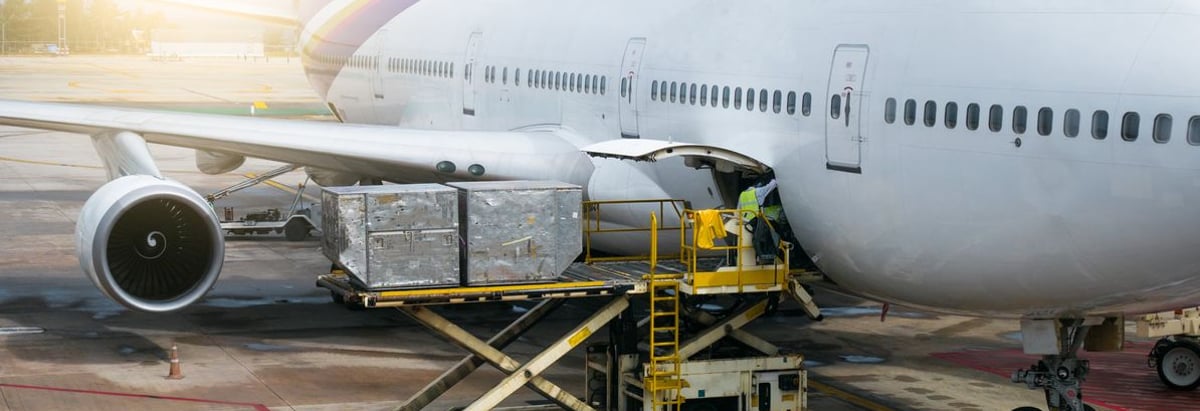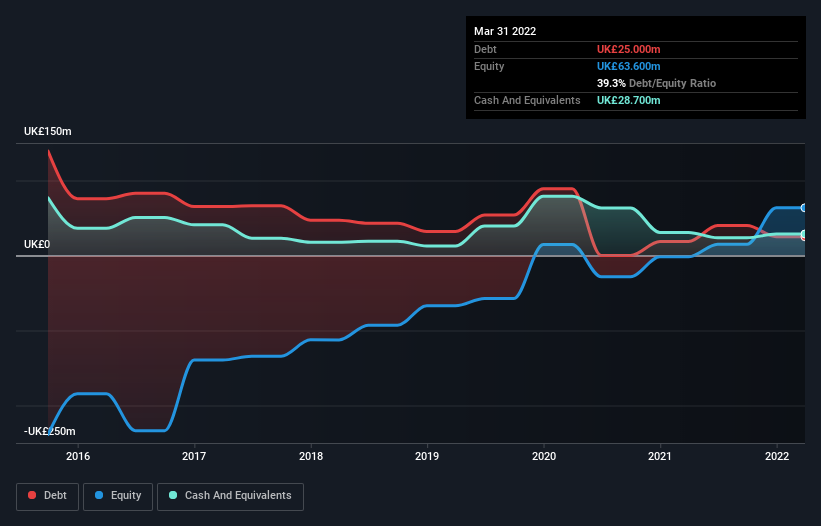
Warren Buffett famously said, 'Volatility is far from synonymous with risk.' It's only natural to consider a company's balance sheet when you examine how risky it is, since debt is often involved when a business collapses. As with many other companies Wincanton plc (LON:WIN) makes use of debt. But the more important question is: how much risk is that debt creating?
Why Does Debt Bring Risk?
Debt and other liabilities become risky for a business when it cannot easily fulfill those obligations, either with free cash flow or by raising capital at an attractive price. If things get really bad, the lenders can take control of the business. However, a more common (but still painful) scenario is that it has to raise new equity capital at a low price, thus permanently diluting shareholders. Of course, debt can be an important tool in businesses, particularly capital heavy businesses. When we think about a company's use of debt, we first look at cash and debt together.
See our latest analysis for Wincanton
How Much Debt Does Wincanton Carry?
You can click the graphic below for the historical numbers, but it shows that as of March 2022 Wincanton had UK£25.0m of debt, an increase on UK£18.7m, over one year. However, its balance sheet shows it holds UK£28.7m in cash, so it actually has UK£3.70m net cash.

How Strong Is Wincanton's Balance Sheet?
According to the last reported balance sheet, Wincanton had liabilities of UK£366.2m due within 12 months, and liabilities of UK£251.5m due beyond 12 months. Offsetting these obligations, it had cash of UK£28.7m as well as receivables valued at UK£149.4m due within 12 months. So its liabilities total UK£439.6m more than the combination of its cash and short-term receivables.
Given this deficit is actually higher than the company's market capitalization of UK£346.6m, we think shareholders really should watch Wincanton's debt levels, like a parent watching their child ride a bike for the first time. In the scenario where the company had to clean up its balance sheet quickly, it seems likely shareholders would suffer extensive dilution. Wincanton boasts net cash, so it's fair to say it does not have a heavy debt load, even if it does have very significant liabilities, in total.
In addition to that, we're happy to report that Wincanton has boosted its EBIT by 51%, thus reducing the spectre of future debt repayments. The balance sheet is clearly the area to focus on when you are analysing debt. But it is future earnings, more than anything, that will determine Wincanton's ability to maintain a healthy balance sheet going forward. So if you want to see what the professionals think, you might find this free report on analyst profit forecasts to be interesting.
Finally, a business needs free cash flow to pay off debt; accounting profits just don't cut it. While Wincanton has net cash on its balance sheet, it's still worth taking a look at its ability to convert earnings before interest and tax (EBIT) to free cash flow, to help us understand how quickly it is building (or eroding) that cash balance. Happily for any shareholders, Wincanton actually produced more free cash flow than EBIT over the last three years. That sort of strong cash conversion gets us as excited as the crowd when the beat drops at a Daft Punk concert.
Summing Up
While Wincanton does have more liabilities than liquid assets, it also has net cash of UK£3.70m. And it impressed us with free cash flow of UK£79m, being 121% of its EBIT. So we are not troubled with Wincanton's debt use. When analysing debt levels, the balance sheet is the obvious place to start. But ultimately, every company can contain risks that exist outside of the balance sheet. For example, we've discovered 1 warning sign for Wincanton that you should be aware of before investing here.
If you're interested in investing in businesses that can grow profits without the burden of debt, then check out this free list of growing businesses that have net cash on the balance sheet.
Valuation is complex, but we're here to simplify it.
Discover if Wincanton might be undervalued or overvalued with our detailed analysis, featuring fair value estimates, potential risks, dividends, insider trades, and its financial condition.
Access Free AnalysisHave feedback on this article? Concerned about the content? Get in touch with us directly. Alternatively, email editorial-team (at) simplywallst.com.
This article by Simply Wall St is general in nature. We provide commentary based on historical data and analyst forecasts only using an unbiased methodology and our articles are not intended to be financial advice. It does not constitute a recommendation to buy or sell any stock, and does not take account of your objectives, or your financial situation. We aim to bring you long-term focused analysis driven by fundamental data. Note that our analysis may not factor in the latest price-sensitive company announcements or qualitative material. Simply Wall St has no position in any stocks mentioned.
About LSE:WIN
Wincanton
Wincanton plc, together with its subsidiaries, provides a range of outsourced and integrated supply chain solutions in the United Kingdom and Ireland.
Adequate balance sheet second-rate dividend payer.
Market Insights
Community Narratives



